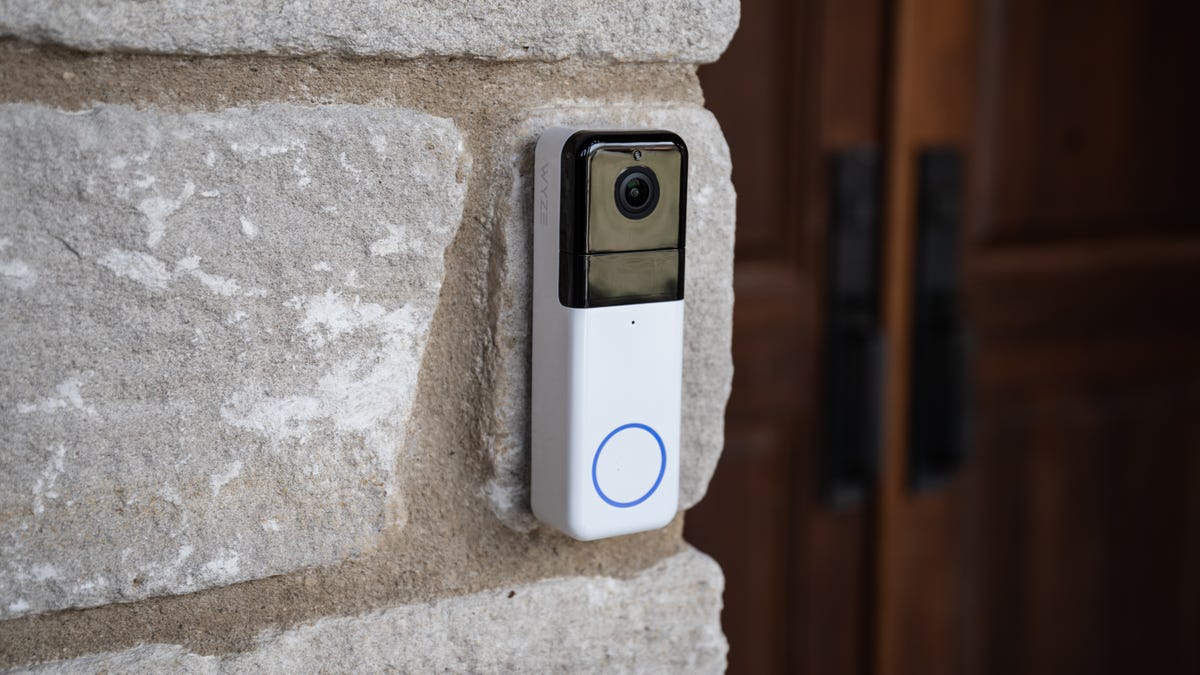 Why You Can Trust CNET
Why You Can Trust CNET Common Home Security Mistakes You Should Avoid Making in 2023
From unlocked windows to exposed house keys, these are four of the biggest mistakes compromising your home's safety.

Avoid these home security mistakes.
There are few things more important than keeping your home safe -- along with the people who live inside it. A home security system can protect your home and the folks inside by acting as a real deterrent to crime. In fact, a University of North Carolina study showed that 83% of burglars check homes for alarms before breaking in, and most said the presence of a security system would've changed their mind about a robbery.
Beyond that, however, there are common mistakes people make that can leave them more vulnerable, even though they might think they've taken steps to secure their home. These are the biggest home security blunders you may be making, and how to avoid them this year and beyond.
For more security tips, try these safety tips for apartment dwellers and how to prevent home security cameras from being hacked.
1. Failing to lock windows or doors
This is going to sound obvious, but one of the worst things you can do when it comes to maintaining your home security is to leave windows or doors unlocked. You might assume that a robber or burglar is going to be willing to brute-force their way into your home, but they are often looking for the lowest effort and lowest impact when breaking in because they don't want to draw attention to themselves. Nothing makes that easier than leaving the door unlocked and allowing them to waltz right in.
One way to prevent this is by placing a security camera outside your front door to create a sense that someone is watching. Another option is to invest in a sensor system that can tell if a door or window is opened. Internet-connected locks may even allow you to lock the door from anywhere, and some systems will alert you when a lock has been left unlocked so you can address it.
2. Hiding keys in common places
Keeping a spare key outside in case you forget your keys or if one of your friends or relatives needs to get into your home is convenient. It's also convenient for other parties who may want to enter your home without permission. Placing a key in a common location can result in a burglar entering your home without any interference -- even when someone else is home, meaning it may put someone inside in danger.
Instead of placing a key in a place where anyone looking can find it, consider more secure options. Put your key in a lock box that requires a code for access. Use a lock with a keypad that requires a PIN. Smart locks can also allow for remote unlock, so you can allow someone into your home even when you aren't there.
3. Not maintaining your tech
Smart home technology has brought us security devices like security cameras, smart locks and alarms. But technology also introduces a number of potential points of failure for your security system -- and ones that you might not consider if you assume that the technology "just works."
Consider how your smart home security devices operate. Do they plug in for power or do they use a battery? Check your plugged-in devices after any power outage to make sure they are operating, and check battery-powered devices regularly to make sure they are functioning as expected. Also, make sure to keep the software up to date. Failing to do so can render your technology faulty or inoperable and can leave you open to cybersecurity attacks.
Home security systems and cameras are two of the best all-around defenses against would-be burglars.
4. Relying on self-monitoring
It might be tempting to just assume that you'll be able to check in on your cameras or respond to any alarm notification on your own. But there is a reason that security companies offer monitoring services -- it's a full-time job. Your camera or alarm may be triggered by something innocuous, and you'll need to check on it. You might be busy when your camera detects an actual break in and you won't be able to check on it in a timely manner. There are ways you can keep track of your security system on your own, but if you can afford it, consider allowing a security company to monitor alerts for you.
Keeping your home secure is incredibly important, and you want to keep your home and your family safe. The last thing you want is to add risk to your home security with an obvious mistake. Take care to avoid these ones to make sure that your home stays protected.
Since you're already thinking about home security, read up on using an old smartphone as a security camera and the most effective places around the house to put security cameras. Heading into holiday shopping, learn how to deter porch pirates.